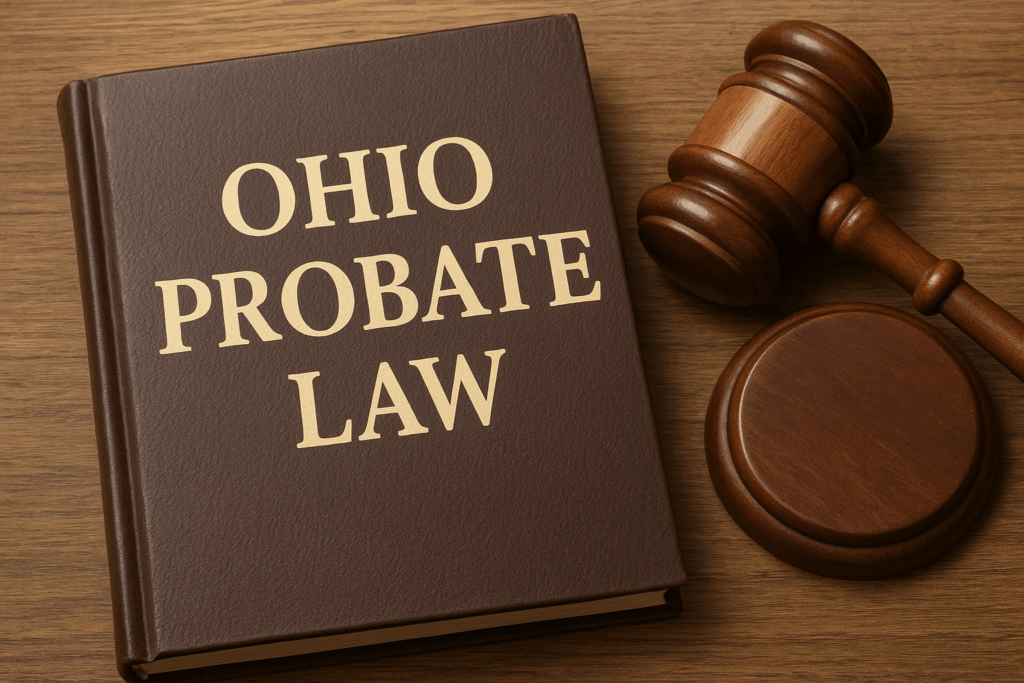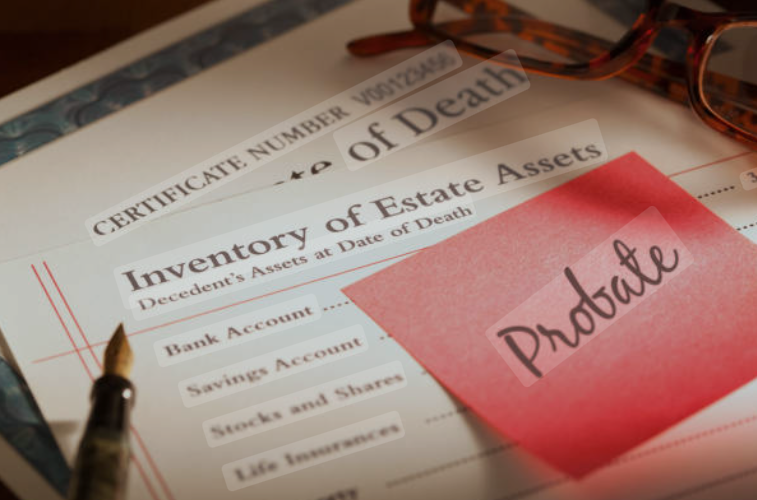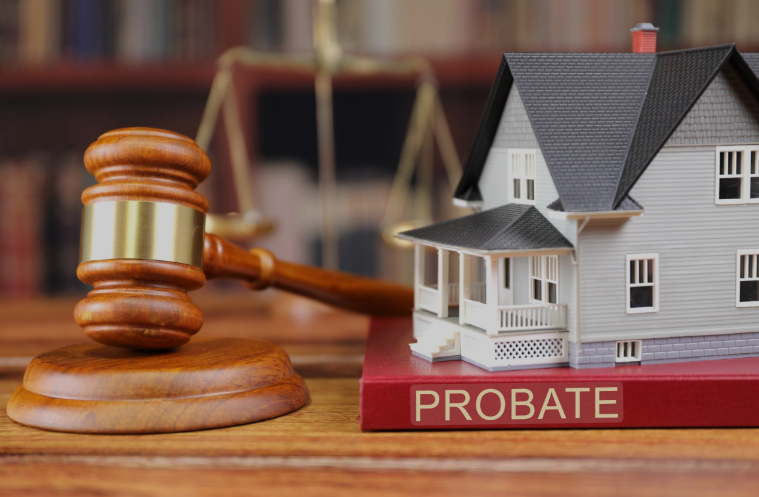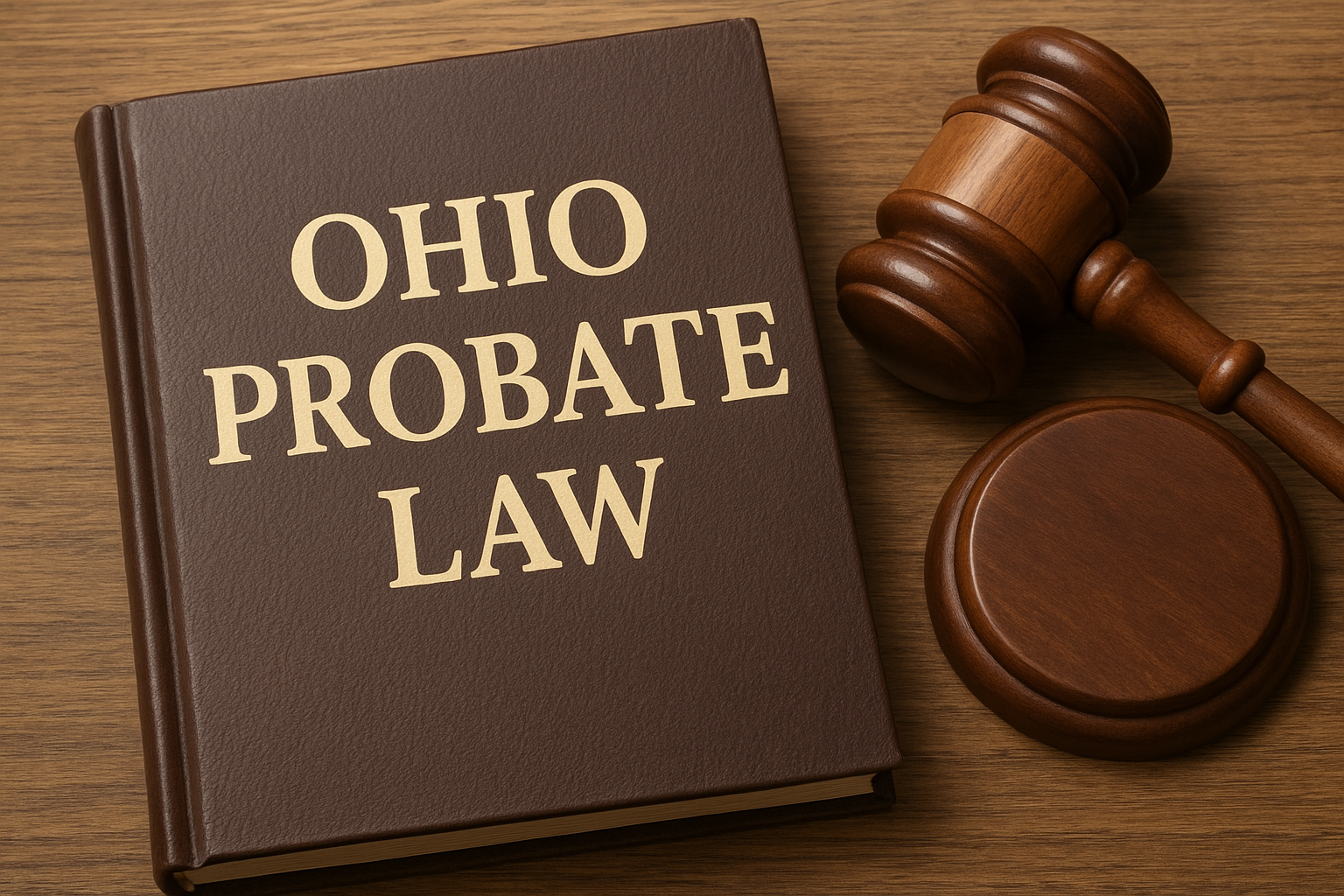
Understanding Probate in Akron, Ohio
Probate is the court-supervised legal process that begins after an individual dies. It involves validating the deceased person’s will (if one exists), inventorying all real and personal property, paying debts and taxes, and distributing the remaining assets to the heirs or beneficiaries. In Ohio, probate proceedings are handled by the Probate Court in the county where the decedent was domiciled at death. For Akron homeowners, this means the Summit County Probate Court is where these matters are addressed.
Under Ohio law, certain assets avoid probate. This includes property already held in a trust, or properties titled with rights of survivorship, or assets with designated beneficiaries. Otherwise, real property in an estate (e.g., the deceased’s house) that was owned solely in the decedent’s name generally must go through probate.
The timeline in Ohio can vary. Simple estates may be resolved in several months; more complex estates involving real property, multiple heirs, or creditor claims often take a year or more. The executor or administrator (“personal representative”) must file an inventory of the estate’s assets, appraise its value, notify heirs and creditors, settle liabilities, and then distribute the assets.
Knowing the process helps you remain in the house without breaking state law or complicating an already challenging probate process, or consider the option to sell your home for cash in Akron or nearby cities to make the process simpler.
Who has the Right to Occupy a House During Probate?
Joint Tenants or Co-Owners with Rights of Survivorship: If the decedent owned the home jointly (with right of survivorship), title may pass immediately to the surviving joint owner, bypassing probate for that portion. In that case, the surviving joint owner often has full occupancy rights from the moment of death.
Surviving spouse rights: “My spouse died, but I’m not on the title” is a common concern. If you’re not on title and the property isn’t being automatically transferred to you via a trust, then the property must go through probate proceedings. The good news is that Ohio law provides important protections for surviving spouses. Under Ohio Revised Code 2106.15:

- If your spouse dies, you (the surviving spouse) have the right to keep living in the main house (the “mansion house”) for free for one year after your spouse’s death.
- However, if the house needs to be sold within that year to pay off your spouse’s debts, the estate can sell it.
- If the house is sold before the year is up, the estate must pay you for the remaining months you would have been allowed to live there, based on what the house would normally rent for.
- That payment to you has the same priority as other “family support allowances” under Ohio law — meaning it gets paid before many other claims on the estate.
Non-spouse heirs: If you are an heir but not a spouse, your rights are less protected. You may stay if the executor permits it, or as part of the will’s instructions. If multiple heirs are involved and there are no specific instructions in the will, occupancy often becomes a negotiation, and any occupant may need to enter into agreements with the executor and other heirs. Written permission is critical.
Non-heirs / Tenants / Others: Sometimes non-family persons, tenants under lease agreements, or occupants by arrangement may live in the house. Their rights depend heavily on whether there is a valid lease, an oral agreement, or whether the executor agrees. Without formal documents or executor approval, their right to stay is weaker.
Limitations on Those Living in the Probate House
Even if you do have the right (or permission) to live in the house during probate, there are several limitations and obligations you must understand. These can affect what you can do in the home, how long you can stay, and what financial and legal responsibilities you have.
Executor’s Authority and Permission Required
The executor / administrator has the legal power to make decisions about the estate property. If you plan to live in the house, you often need their explicit permission. The executor might impose conditions, for example, requiring you to pay for utilities, upkeep, or insurance. If you stay without permission, it could be deemed unauthorized occupancy. In Ohio, unauthorized occupiers could eventually be asked to vacate or be required to pay use and occupancy fees.
Restrictions on Modifying or Renting the Property
Major renovations without approval are usually prohibited. You may not be able to rent out part of the house or enter into subleases without the executor’s or court’s approval. Changes that alter property value or shape estate obligations are likely to get contested.
Liability, Insurance, Maintenance
The probate estate must maintain insurance and keep the house in good repair. If you live in it, you might be contractually or legally expected to help with that.
Disputes Among Beneficiaries or Heirs
When multiple heirs or beneficiaries exist, some may want to sell; others may want someone to live there. Disagreements can lead to court intervention. Executors must act in the best interest of the estate.
Time Limits
Living arrangements during probate are always temporary and uncertain. Probate can be delayed by creditor claims, disputes, or title issues. So even with permission, occupants should plan for possible eviction or sale and have backup housing options.
Example: Let’s say Tom is inheriting his father’s house in Akron. The executor allows Tom to live there during probate if Tom pays the utilities, property taxes, and a modest use and occupancy fee. This ensures that other heirs (if any) don’t feel unfairly burdened and the estate doesn’t lose value.
How Real Property in an Estate Is Treated During Probate

The house doesn’t immediately become owned by heirs once someone dies; probate determines title transfer, debt obligations, and possible sale. Here’s how real property is treated during probate in Ohio, with implications for occupancy and sale.
Inventory, Appraisal, and Valuation
The executor must inventory all assets, including the house, and often get an appraisal to determine its fair market value for estate accounting and tax purposes. Knowing the value helps all parties understand what debts or obligations might need to be covered, whether the house itself is worth keeping or selling.
Title Issues: Sole Ownership, Joint Ownership, Trusts, Survivorship Rights
If the property was titled only in the decedent’s name, probate handles it. If the property was jointly owned with rights of survivorship, the surviving owner may assume full title without probate. If in a trust or with designated beneficiaries, probate might be bypassed or simplified. Long-standing trusts can avoid delays.
Will vs Intestacy
If there is a valid will, its instructions around property distribution (who gets the home, whether to sell, etc.) guide the executor’s actions. If there is no will, Ohio’s intestacy laws (statutes) dictate who inherits, often the surviving spouse first, then children, etc. The will might also specify occupancy rights temporarily or assign someone to live in the home.
Requirement to Pay Debts and Creditor Claims
The estate must use its assets to pay valid creditor claims, including any mortgage, other debts secured by the property, etc. If debts exceed liquid assets, sometimes the sale of the house is required. In such a case, occupancy rights shift.
Practical Steps for Occupants During Probate
If you’re not a surviving spouse and you find yourself living (or wanting to live) in the house during probate, here are practical steps to protect your interests, reduce risk, and make sure everyone stays on the same page.
- Get Agreements in Writing
Even if you are heir or named beneficiary, document any arrangement with the executor or estate. What are you allowed to do? What obligations (repairs, utilities, taxes) will you shoulder? Is there a use and occupancy fee? Having this in writing helps avoid disputes later. - Understand what you’re responsible for financially
You may need to cover utilities, insurance, property taxes, and maintenance. Otherwise, estate value may diminish. It’s best to get estimates of these costs early. - Communicate with Executor and Other Heirs
Keep open lines of communication. Understand the executor’s plan: whether the house will be sold, kept, or whether heirs want you out. If heirs disagree, mediation might help. - Document the Condition of the Property
Before moving in or continuing to occupy, I recommend taking photos and videos of the exterior of the house and each room of the interior. That way, you’re not blamed for pre-existing damage. This protects both you and the estate. - Prepare for Sale or Move-Out
Have a backup plan in terms of housing. Probate can take longer than expected, but eventually, the property may change hands. Knowing your options ahead of time gives you leverage and peace of mind. - Consult an Attorney in Akron
It’s always best to consult an attorney to make sure your interests are protected.
Special Situations & Examples
Here are some special situations to consider for probate in Akron:
- Multiple Heirs with Differing Goals
Example: One heir wants to live in the house; another wants to sell. These kinds of conflicts can stall probate, increase legal fees, and reduce estate value if the house remains empty or poorly maintained. Executors may have to either mediate, buy out one heir, or get court orders to sell. - When the Occupant is a Tenant
If the deceased had tenants under valid leases, those leases generally survive probate. Occupant tenants with valid contracts have rights, and the executor must honor leases. Tenants must continue to pay rent, and the landlord’s responsibilities to the tenant survive. - Trusts, Life Estates, Occupancy Rights Created Before Death
If the house is held in trust, or the decedent gives someone a life estate or right of occupancy before death, that person’s rights may bypass or partially avoid probate. This can allow long‐term occupancy with fewer legal disputes.
Selling an Occupied House During Probate
Many heirs of Akron property wish to sell a house during probate. However, when heirs are living in a probate property, it can make selling the home far more challenging. Showing the house to prospective buyers can become difficult, especially if an occupying heir is resistant to the sale and is deliberately limiting access to extend their time in the home. This can delay the sale, frustrate other heirs, and I’ve even seen it result in buyers backing out of a sale.
At Snap Sell Homebuyers, we make this situation much easier. We purchase probate properties as-is, so heirs don’t need to worry about repairs or preparing the home for traditional buyers. We also offer use and occupancy (post-possession) agreements, which allow occupants to stay in the home after the sale closes. This gives heirs or surviving spouses time to find a new residence, pack, and move without feeling rushed, while also putting cash in their hands immediately. It’s a solution that provides financial relief, peace of mind, and flexibility during an already emotional time.

